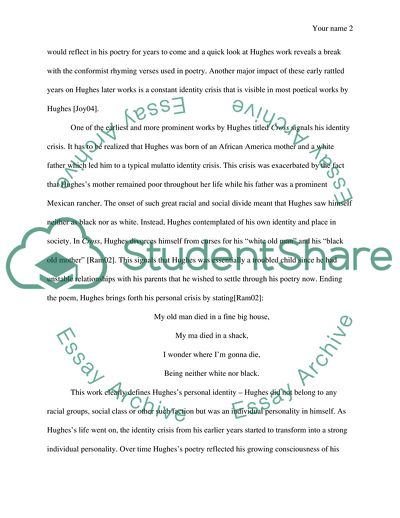Cite this document
(Explication of Langston Hughes Poetry Assignment - 1, n.d.)
Explication of Langston Hughes Poetry Assignment - 1. https://studentshare.org/literature/1783312-explication-of-langston-hughes-poetry
Explication of Langston Hughes Poetry Assignment - 1. https://studentshare.org/literature/1783312-explication-of-langston-hughes-poetry
(Explication of Langston Hughes Poetry Assignment - 1)
Explication of Langston Hughes Poetry Assignment - 1. https://studentshare.org/literature/1783312-explication-of-langston-hughes-poetry.
Explication of Langston Hughes Poetry Assignment - 1. https://studentshare.org/literature/1783312-explication-of-langston-hughes-poetry.
“Explication of Langston Hughes Poetry Assignment - 1”. https://studentshare.org/literature/1783312-explication-of-langston-hughes-poetry.


